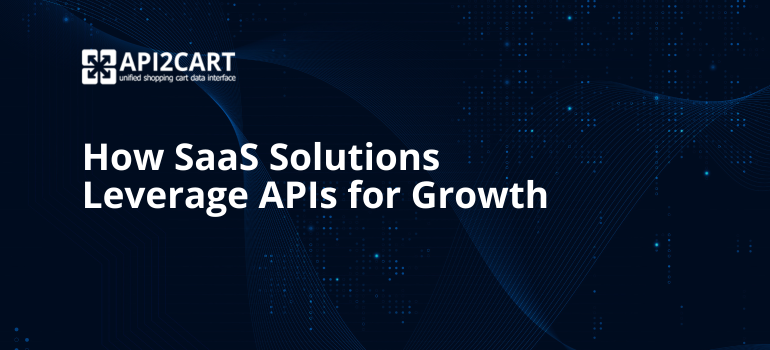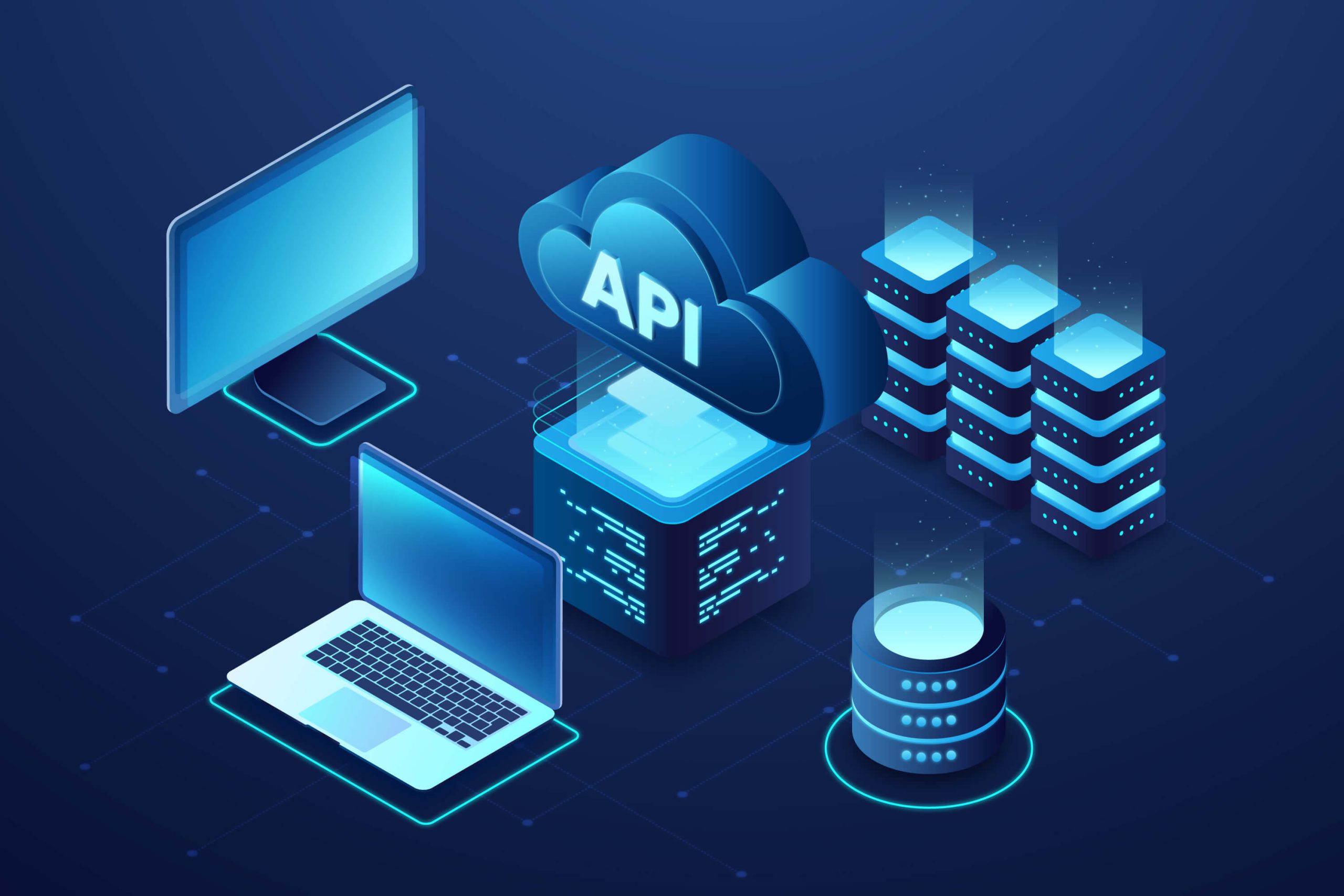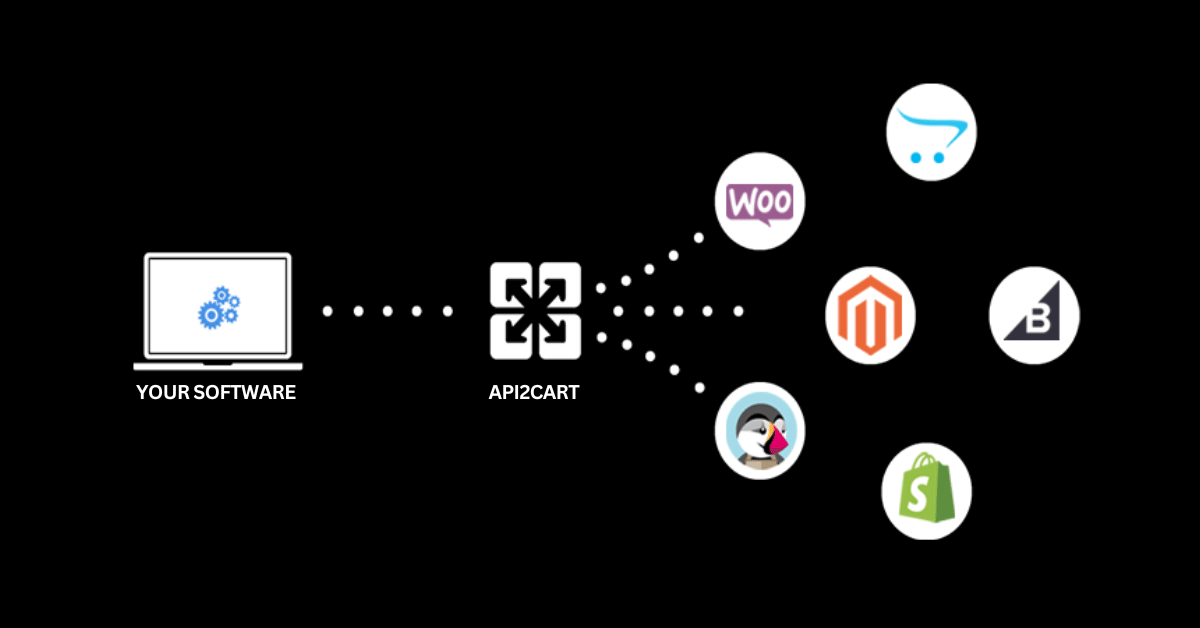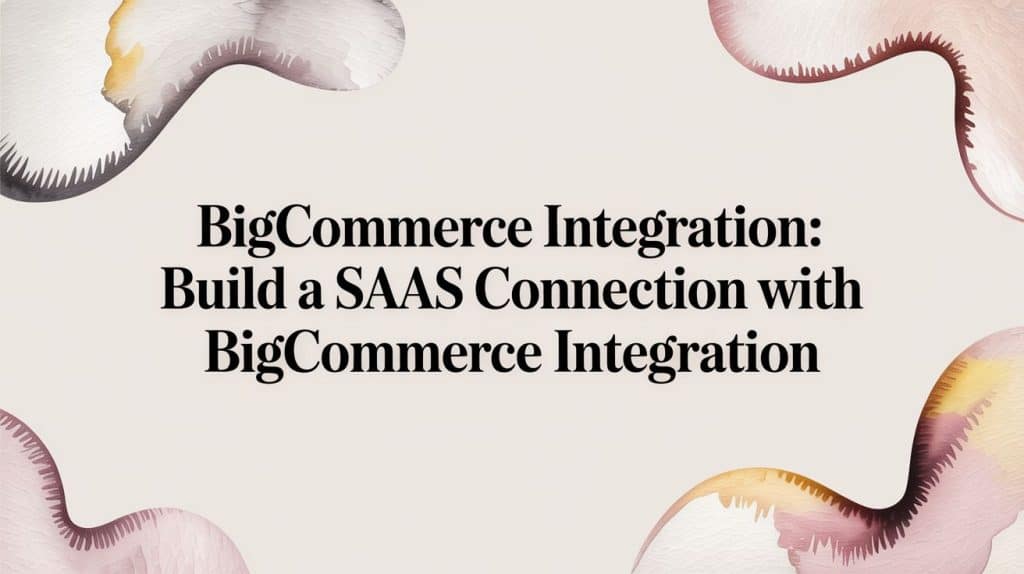
In today’s fast-paced digital landscape, Software-as-a-Service (SaaS) solutions have become essential tools for businesses of all sizes. These platforms offer flexibility, scalability, and efficiency, empowering organizations to streamline their operations. However, the real power is achieved when SaaS solutions are seamlessly integrated with other systems and platforms, this is where APIs come into play.
APIs act as bridges, connecting disparate software systems and enabling them to communicate effortlessly. For SaaS providers, leveraging APIs is not just a technical necessity, it’s a strategic advantage. By integrating with APIs, SaaS solutions can expand their functionality, enhance customer experiences, and unlock new revenue opportunities. In this article, we’ll explore how APIs drive growth for SaaS providers, their key benefits, and best practices for successful integrations.
What is an API?
An API (Application Programming Interface) is a set of protocols, tools, and definitions that enable software applications to communicate with each other. For SaaS (Software as a Service) providers, APIs play a critical role in ensuring seamless integration and interoperability between their solutions and other software systems.
APIs allow SaaS applications to connect with other platforms such as CRMs, ERPs, payment gateways, and eCommerce platforms, enabling data exchange and functionality sharing. By offering APIs, SaaS providers empower developers to build custom features, integrations, and extensions that enhance the core platform. Also, APIs allow SaaS solutions to interact with a broader ecosystem, making it easier to accommodate diverse customer needs and scale operations globally.
APIs facilitate process automation by enabling different systems to work together without manual intervention, boosting efficiency and reducing errors. By supporting APIs, SaaS providers can build a developer community that contributes to the platform’s growth through new integrations and extensions.

The Meaning of SaaS integration
SaaS integration is the process of connecting a Software-as-a-Service (SaaS) application with other systems, platforms, or services. These connections can be in the cloud or on-premises. Basically, the goal is to ensure smooth data exchange and automate workflows. Also, this integration allows disparate systems to work together cohesively, providing users with a unified experience and eliminating the need for manual data entry or separate processes.
For SaaS providers, integration is a critical feature that enhances the value of their software. SaaS solutions can offer integrations with popular platforms like CRMs, ERPs, eCommerce systems, and payment gateways. This allows them to meet a wide range of business needs. As a result, they become essential tools in their clients’ technology ecosystems. SaaS integration is typically facilitated through APIs (Application Programming Interfaces), middleware, or dedicated integration platforms that enable smooth and reliable communication between systems.

The Importance of APIs for SaaS Solutions
APIs (Application Programming Interfaces) are essential for SaaS solutions because they enable seamless communication, integration, and scalability across different software ecosystems. For SaaS providers, APIs play a critical role in enhancing product functionality, expanding market reach, and delivering exceptional user experiences. Basically, APIs unlock numerous benefits that drive growth and enhance the value proposition of their platforms. Here's why APIs are so important:
1. Facilitate Seamless Integrations:
APIs allow SaaS solutions to connect with other software systems, such as CRMs, ERPs, eCommerce platforms, and payment gateways. This integration eliminates data silos and enables businesses to create cohesive workflows, enhancing efficiency and productivity for end-users.
2. Drive Scalability and Flexibility:
APIs offer a scalable approach to adding new features or expanding into new markets. SaaS providers can build modular solutions that evolve with customer needs, ensuring flexibility without overhauling the core platform.
3. Streamline Data Exchange:
APIs enable real-time data sharing between systems, ensuring accuracy and up-to-date information across platforms. For example, integrating a SaaS solution with an eCommerce platform can synchronize inventory, orders, and customer data effortlessly.
4. Accelerate Innovation:
By leveraging APIs, SaaS providers can quickly integrate third-party services or tools, reducing development time for new features. This fosters faster innovation and keeps the platform competitive in a rapidly changing market.
5. Expand Market Reach:
APIs help SaaS solutions enter new industries or regions by enabling connections with local or niche systems. For example, integrating with region-specific payment gateways or marketplaces can open doors to new customers.
6. Enhance Customer Experience:
By providing API-powered integrations, SaaS providers empower customers to tailor the software to their specific needs. This level of customization and interoperability improves user satisfaction and retention.
In essence, APIs are the backbone of modern SaaS solutions, ensuring they remain adaptable, user-centric, and innovative in a competitive landscape. Businesses today rely on multiple tools and platforms to operate efficiently. APIs help SaaS solutions connect with these tools and become part of a larger, interconnected network. This connection drives growth and creates value for both providers and their customers.
Why Do SaaS Providers Need a Сonnection with eCommerce Platforms via APIs?
Being a SaaS app provider you want to take advantage of the connection with modern eCommerce platforms for several reasons. Whether it’s Shopify, OpenCart, WooCommerce, PrestaShop, Magento, or any other eCommerce solutions, setting up a connection with them allows your business to:
1. Access to a Broader Market:
By integrating with major eCommerce platforms and marketplaces, such as Shopify, Magento, and WooCommerce, SaaS providers can tap into a massive base of online merchants. This connectivity opens opportunities to serve diverse industries and significantly expand the SaaS provider’s customer base.
2. Enhanced Service Offerings:
APIs allow SaaS solutions to provide critical eCommerce functionalities, including inventory management, order synchronization, shipping and logistics tracking, customer and product data synchronization. These features make SaaS tools indispensable for online retailers looking to streamline operations.
3. Improved Data Accuracy and Efficiency:
Real-time data exchange through APIs eliminates manual data entry and reduces errors. This capability ensures that SaaS customers can maintain up-to-date and accurate records across their eCommerce and operational platforms.
4. Customization and Scalability:
APIs empower SaaS providers to offer customizable solutions tailored to specific merchant needs. Also, they facilitate scalability by enabling integration with multiple eCommerce platforms simultaneously, which is essential for businesses with multi-channel sales strategies.
5. Competitive Advantage:
In a crowded SaaS market, having robust eCommerce integrations can differentiate a provider from competitors. APIs enable SaaS providers to deliver unique features, positioning their solution as the go-to choice for merchants.
In summary, API-driven connections with eCommerce platforms are not just a technical feature but a business imperative for SaaS providers. Moreover, hey enable better customer experiences, open new revenue streams, and ensure the SaaS solution remains competitive in a rapidly evolving digital landscape.

How to Develop SaaS API Integration with Multiple eCommerce Platforms?
There are two ways you can develop a SaaS API integration with different eCommerce platforms. The first, and the easiest, safest, most reliable, cheapest solution is to use the advantages provided by API2Cart. Using API2Cart unified API, you will be able to connect to 60+ eCommerce platforms and marketplaces, including Shopify, Magento, WooCommerce, BigCommerce, OpenCart, PrestaShop, and others, at once, without any issues at all.
The second option you have is to attempt to manually integrate your SaaS app with the available APIs of the eCommerce platforms out there. Generally, this option comes with some huge disadvantages, out of which we can pinpoint the following:
- You have to do that manually for each platform;
- The cost of each integration is in the thousands of dollars and taking weeks, and sometimes months, depending on the complexity;
- If you want to be successful, you need to hire experienced developers who have developed these integrations;
- There are a bunch of bugs and issues with a lot of APIs that need to be overcome. That needs constant fine tuning and improvement;
- Manual integrations are risky because cybercriminals can come and steal the precious data through them;
- One of the hardest things to do is keep integrations up to date, especially when shopping platforms release new updates on a regular basis.

Simplify eCommerce Integrations and Grow Your SaaS with One Unified API
You will have noticed, however, that it is a complete waste of time to attempt to do eCommerce integrations without professional help. You have nothing going for you, but everything against you. But as with API2Cart, you can only win. You win time, money and more satisfied customers. Also, you can get access to your customers’ e-store data and use 100+ API methods to manage it. Retrieving, synchronizing, adding, deleting info about products, customers, shipments, taxes is pretty simple with API2Cart. Integrating your software with API2Cart is all you need to do.
If you want to keep your existing customers, grow your business, and take advantage of all the other benefits, you must get your SaaS business integrated with the APIs of eCommerce platforms. Contact us now, book a FREE demo and learn how we can assist you in developing your SaaS API integration with Magento, Shopify, WooCommerce and other platforms easily and quickly.
Conclusion
Thus, APIs are the backbone of modern SaaS integrations, enabling seamless connectivity and interoperability between diverse applications. They unlock powerful new functionalities, and foster collaboration across a vast ecosystem of digital tools. By leveraging APIs, SaaS providers can expand their market reach, improve customer satisfaction, and offer scalable, flexible solutions that meet the ever-evolving needs of businesses.
Moreover, APIs empower SaaS solutions to integrate with eCommerce platforms, CRMs, ERPs, and countless other systems, allowing for data-driven decision-making and process automation. Generally, these capabilities not only enhance the core value of SaaS offerings but also solidify their role as indispensable tools in a connected business landscape. As the demand for interoperability and seamless digital experiences grows, SaaS providers that embrace API integrations will remain competitive and positioned for sustained success. So, by leveraging APIs strategically, they can continuously innovate, expand their offerings, and drive long-term growth in an increasingly interconnected world.



